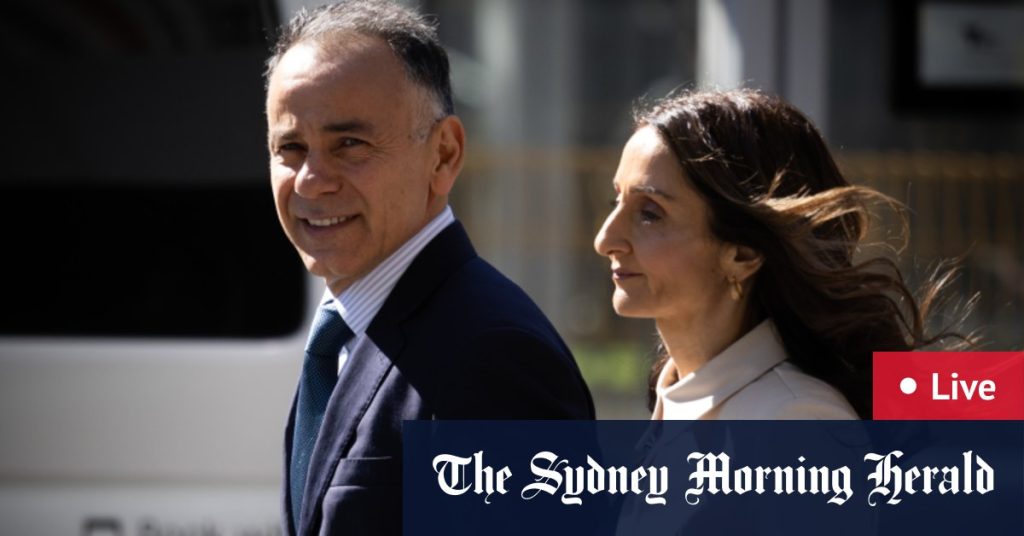Dr. Collins clarifies that Pesutto’s case is not that Deeming or the Let Women Speak organizers invited neo-Nazis to their rally. However, he emphasizes that the neo-Nazis repeatedly claimed to be there to support and protect the event, regardless of whether the organizers wanted them there or not. The court was presented with evidence of the neo-Nazis equating trans people with paedophilia and accusing them of infiltrating institutions. Collins drew comparisons between statements made by UK activist Kellie-Jay Keen and former NSW Liberal candidate Katherine Deves, which Deeming had previously rejected during cross-examination.
Collins describes the video footage of the neo-Nazis as “utterly chilling” and argues that the appropriate response for a member of a mainstream political party is to unequivocally, loudly, and clearly denounce such hate speech. Instead of denouncing the neo-Nazis, he claims that Deeming celebrated the Let Women Speak rally, drank champagne, and indulged in “bizarre conspiracy theories.” One of these theories suggested that the neo-Nazis were actually police officers or trans rights activists pretending to be neo-Nazis. Deeming denied supporting this theory in court.
The court proceedings included arguments regarding the responsibility of political party members to denounce hate speech and extremist groups. Collins criticizes Deeming for failing to denounce the neo-Nazis at the rally and for allegedly promoting conspiracy theories instead. He highlights the need for members of mainstream political parties to take a firm stand against such ideologies and to distance themselves from hate groups. Collins emphasizes the seriousness of the situation and stresses the importance of unequivocal condemnation of hate speech.
Deeming’s defense in court involved denying any support for the conspiracy theory that the neo-Nazis at the rally were actually police officers or trans rights activists pretending to be neo-Nazis. Despite her denial, Collins criticizes Deeming for failing to denounce the hate speech and extremist views expressed by the neo-Nazis. He argues that celebrating the Let Women Speak rally and dismissing the presence of neo-Nazis as a conspiracy theory undermines the severity of the situation and fails to address the harm caused by such ideologies.
The court case involves a debate over the response of political party members to hate speech and extremist groups infiltrating their events. Collins argues that Deeming’s failure to unequivocally denounce the neo-Nazis at the rally and her indulgence in conspiracy theories discredit the seriousness of the situation. He stresses the need for members of mainstream political parties to take a strong stance against hate speech and extremist ideologies, highlighting the responsibility of party members to condemn such views unequivocally.
The case highlights the importance of addressing hate speech and extremist ideologies within political movements. Collins’s arguments underscore the necessity for political party members to take a clear stand against hate groups and to distance themselves from extremist views. By criticizing Deeming for failing to denounce the neo-Nazis at the rally and promoting conspiracy theories, Collins emphasizes the gravity of the situation and calls for a firm rejection of hate speech within mainstream political parties. The court proceedings shed light on the complexities of addressing extremist views and the responsibilities of political party members in confronting such ideologies.




